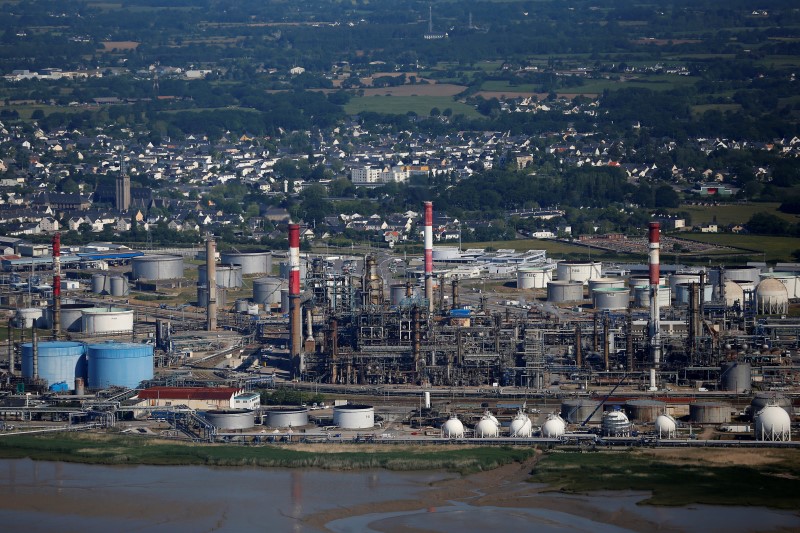By Peter Nurse
Investing.com - Oil markets fell back Monday, as investors reacted with disappointment to the postponement of a meeting of major oil exporters that had been expected to try and balance a flooded market.
AT 8:45 AM ET (1245 GMT), U.S. crude futures traded 3.3% lower at $27.38 a barrel, while the international benchmark Brent contract fell 2.5% to $33.26.
The meeting was rescheduled over the weekend to Thursday from Monday, amid a war of words between Russia and Saudi Arabia, indicating that bad blood still exists between the two.
That said, the head of Russia's sovereign wealth fund, Kirill Dmitriev, said Russia and Saudi Arabia were on the verge of agreeing a deal.
“I think the whole market understands that this deal is important and it will bring lots of stability, so much important stability to the market, and we are very close,” Dmitriev, who is also one of Moscow’s top negotiators, told CNBC.
A previous three-year deal to stabilize oil prices collapsed a month ago, with Saudi Arabia and Russia blaming each other for failure to find a compromise at an OPEC+ meeting in Vienna on March 6.
Any agreement that cuts supply by less than the 10-15 million barrels a day previously mentioned “would likely disappoint the market, given growing expectations last week, along with the deteriorating demand picture,” said ING, in a research note.
“The deal really hinges on the U.S. though, with Russian participation dependent on the U.S. contributing to cuts,” ING added.
President Donald Trump's efforts to persuade U.S. companies to cut production came to nothing at the weekend. Trump instead threatened to levy tariffs on imports of foreign oil, something that would depress prices further outside the U.S.
Bassam Fattouh and Adi Imsirovic, analysts at the Oxford Institute for Energy Studies, said that Trump's talk had exacerbated a disconnect between physical markets, which are struggling under the reality of massive oversupply, and futures markets, where the bulk of speculative activity is concentrated.
"These disconnections...are not sustainable and the alignment between physical and paper markets will eventually happen," they argued in a research note on Monday. "Trump’s tweets risk making such an alignment abrupt and severe, introducing unnecessary volatility and extreme price movements, especially if the proposed producers’ meeting later this week fails to deliver an agreement on an output cut."
ING analysts, meanwhile, argued that “while mandated U.S. cuts might be a tough ask, we continue to see more signs that market forces will drive U.S. output lower." They cited the latest data from Baker Hughes, which showed that the number of active oil rigs in the U.S. fell by 62 last week to just 562, the biggest weekly decline since March 2015.
This means that the U.S. oil rig count has fallen by 121 over the past three weeks.
